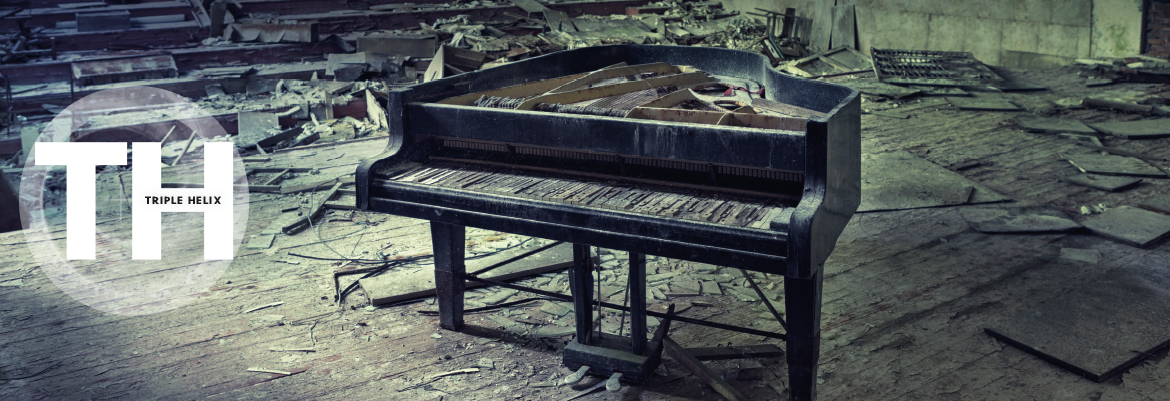beauty for ashes
One cold day in late January 1975, a junior staffer at the Cologne opera house realised with horror that the piano her team had taken out of storage for that night’s high-profile concert was the wrong one. Not only was it not the highly-tuned, expensive Bösendorfer concert grand piano the impresario playing that night had ordered, but it was also out of tune, had a broken sustain pedal, and a tinny, jingly tone ill-suited to the playing style of that night’s performer.
After pacifying the pianist and assuring him that they would get it tuned, the 17-year-old Vera Brandes managed to get her team to tune and fix up the piano as best they could. It was still not at concert pitch, but it would just about work. To add to the pressures of that night, the pianist, US jazz musician Keith Jarrett, was jet lagged, in severe pain from a back injury, and was significantly sleep-deprived as a result. When he finally started playing at 11:30 pm, he had to wear a back brace to make it through the performance.
The recording of this concert was released as Köln, 24 January 1975. [1] It is the best-selling jazz piano album of all time and is still regarded by many as among the great, essential jazz albums. In the face of all adversity, Jarrett managed to produce a masterpiece. [2]
God has given humans incredible creativity and resilience to turn crises and disasters into opportunities. Whether it is the huge leaps in vaccination technology that Covid generated or the incredible adaptability of people dwelling off the municipal rubbish tips in cities like Manila, we can achieve remarkable things when everything else says we should fail.
How much more, I believe, does God create remarkable things out of our brokenness? Paul reminds us of this in 2 Corinthians 12:9, when God answered his prayer about his ‘thorn in the flesh’, saying, ‘My grace is sufficient for you, for my power is made perfect in weakness‘.
In the incarnation and the cross, we see the Creator of all enter our darkness [3] and share in our weakness [4] and pain, just as we share in his suffering. [5] And out of the apparent disaster of the cross comes the resurrection and the hope of the new creation. [6] In Jesus, God creates something extraordinary out of something broken and awful.
Do we produce masterpieces out of our experiences of adversity? Probably, most of the time, we simply get by. Are we great overcomers? We may aspire to that, but if we are honest, we usually muddle through and do the best we can – nothing spectacular, nothing worthy of note.
Yet God does things we do not see – in us and in those around us. Things that we may not even notice. He is busy creating those masterpieces out of our lives and our brokenness and adversity. Masterpieces we may not even be aware of in this life.
In this edition of Triple Helix, we look at what it is like to be ‘on the other end of the stethoscope’. We read the stories of members who have faced illness, suffering, grief, and fear. The suffering and loss are real – nothing to romanticise or put on a pedestal. Indeed, I am sure every one of us can tell similar stories. But, as health professionals and followers of Christ, those experiences have particular poignancy and a strange resonance. We deal with the fear, grief, and suffering of others every day as doctors, nurses, and midwives. But we also have a God who has entered into that suffering in a very real way in the person of Jesus.
As we deal with our own weakness and suffering, how does it transform our care for our patients and colleagues as they deal with theirs? How does having Jesus at the centre of our lives transform the negative situations we face?
We hope you are encouraged and inspired by the stories our authors have bravely shared: encouraged in your own trials and challenges and inspired in how you accompany your patients through their suffering.



